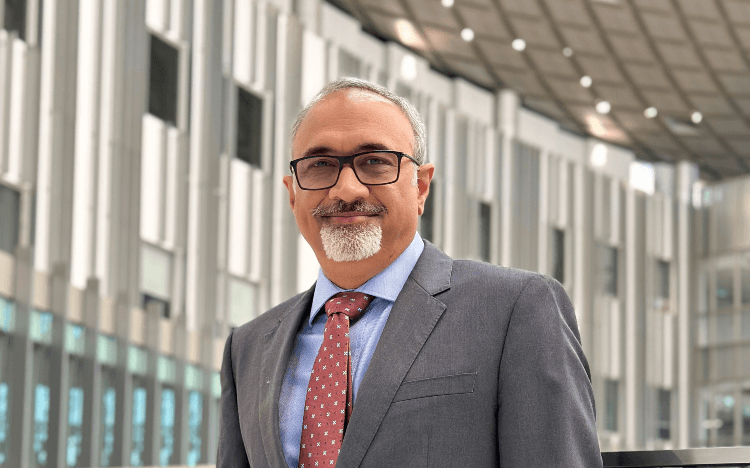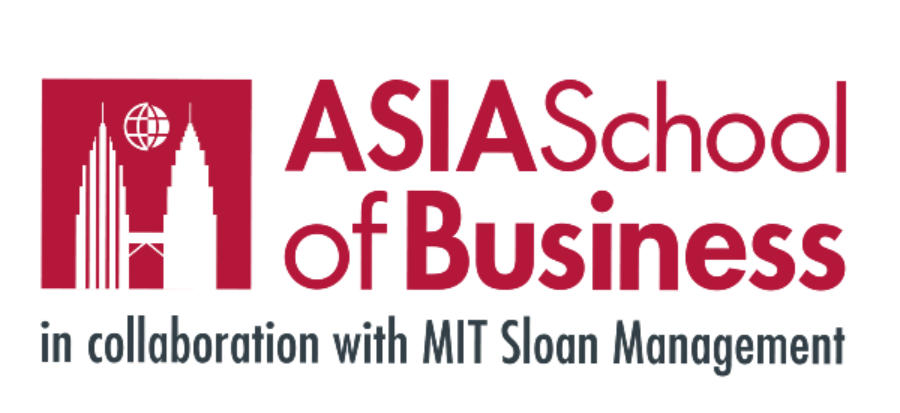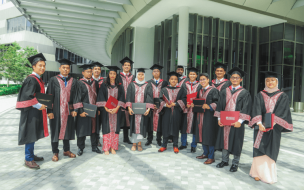Students in the school’s flagship MBA program, for example, embark on semester-long, mission-driven projects with host companies. Working to identify key business challenges, students then plan and implement their solutions before reflecting on their results.
Since the initiative began there have been 467 'Action Learning' projects at ASB, with 207 host companies in 33 countries.
While action learning has come to define the ASB MBA, today the school is busy shaping another kind of education, aptly known as Agile Continuous Education (ACE).
In today’s rapidly evolving business environment—where breakthroughs in artificial intelligence, changes in the regulatory environment, and increasing standards on sustainability can have widespread impact—the responsibility of business schools has changed, Dean Sarma says.
“The days of studying for a degree such as an MBA and being set for your career are over. We are well and truly in the era of continuous education, and we must provide it to our graduates.”
The continuous MBA education
Underpinning the school’s move towards lifelong education is the need for today’s graduates to constantly specialize and re-specialize throughout their careers, explains Dean Sarma.
As their careers evolve, today’s business school students will have to rapidly acquire the new skills they need at work—whether it is in a large corporation, a small and nimble company, or in a single-proprietor gig.
As companies cannot afford to continuously retrain new employees for their jobs, this could mean revisiting education many times after graduation, says the dean, adding: “At ASB, we see it as our responsibility to equip graduates to hit the ground running, and to equip them with the ability to acquire new knowledge for themselves and for the company as they need it."
He uses the example of technological innovations such as generative AI, which will undoubtedly impact the workplace.
“Companies need employees with the tech chops to help them utilize these tools,” he says.
“With ACE, we empower our students to succeed in their careers, allowing graduates who have completed the MBA program to continue learning through hybrid learning content that is tailored to their career paths,” explains Dean Sarma.
Graduation just becomes a mere milestone, he adds and ASB students will be able to return to study short form courses that cover a range of areas that are specific to their needs in the workplace.
Gig education for the gig economy
ACE will change how ASB works, with lifelong education being the outcome. Additionally, it will help to educate more people than a typical business school.
Offering modules and short courses focused on specialized skills and knowledge—an introduction to AI, for example, or an update on the latest developments in fintech—means educational opportunities for learners outside ASB who also require these skills.
Alumni themselves can point this resource out to colleagues, Dean Sarma explains, adding: “Not everyone is ready for—or needs—an MBA, but they may also want to come and drink from the well.
“For those who are facing existential questions because of rapid tech changes, this provides the opportunity to update their knowledge and even pivot into new areas as they progress in their careers.
“I’ve always felt the agile, gig economy and the gig future deserve a gig education system. That’s basically what we are doing.”
The future is hybrid
If you apply for an MBA this year, the vast majority of learning opportunities at ASB will be in-person, and students will be able to reap the benefits of studying and interacting together in a dynamic classroom.
It won’t be a passive lecture-over-video model, however, explains the dean. Instead, there will be “doing sessions”, where students apply their learning in case studies, implementation examples, action learning, labs, scenarios, simulations, and workshops.
But getting it right remains a challenge: “When you go into the hybrid environment, you have to really work at it,” Dean Sarma says.
Achieving ACE, effectively delivered in a hybrid format, is a step-by-step process at ASB. Dean Sarma highlights that the school is at the beginning of its journey. However, incorporating current ASB students into this evolution is one way the school plans to make it successful.
“When you make changes, your closest innovators need to be your lead users. This is because they understand it best but they also help you improve and pivot based on feedback,” he explains.
“You can’t just assume you have it right the first time. But when you really hit the zone, it’s fantastic collectively.”
Next read: Master AI Or See Your Career Threatened, Says Asia School Of Business CEO








